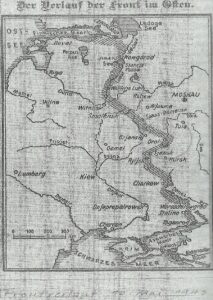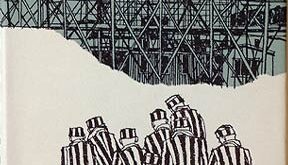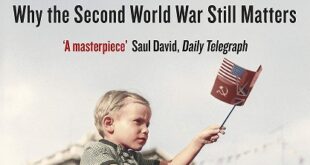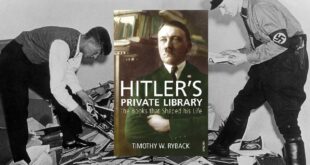 Hans Roth, a member of the Sixths Army anti-tank panzerjager battalion, 299th Infantry Division, offers a breathtaking account of the War on the Eastern front through the journals he kept from the start of Operation Barbarossa until his likely demise on the front in the Summer of 1943.
Hans Roth, a member of the Sixths Army anti-tank panzerjager battalion, 299th Infantry Division, offers a breathtaking account of the War on the Eastern front through the journals he kept from the start of Operation Barbarossa until his likely demise on the front in the Summer of 1943.
Roths’s journals were discovered years after the war in the home of his brother. After his brother’s death, they were sent to Hans Roth’s wife, Rosel, who passed them on to their only daughter, Erika. Erika’s children (Roth’s grandchildren), Mason Kunze and Christine Alexander, were the ones who gave those memoirs life through this book.
The journals starts on June 12th, 1941, when Roth is in Poland, already heading East for the start of Germany’s invasion of the Soviet Union (Operation Barbarossa). As such, we are lucky to see Germany’s advance in the East right from the beginning, through Roth’s eyes.
The writing is as good as can be expected considering the circumstances (I was quite impressed), straightforward and concise, making the book reasonably easy to read. It does get repetitive at times with all the fighting going on day after day, but Roth seems to be complex enough to focus on other things as well, and there are even traces of humour.
It’s quite remarkable, or sad, or both, how the atmosphere deteriorates as the book goes on. In the beginning, it was all good for the Germans, but in the last part of the volume, things get really dire (and you can only imagine how much worse it got on the front after 1943, when the journals stopped). You have to feel for Roth and his comrades – they were normal people, just like most other soldiers in this miserable war. Roth was definitely not a bad human being, you can feel that quite clearly. At one point he mentions witnessing some murders (he very well might have witnessed the Babi Yar massacre) and he is nauseated and disgusted.

The book is filled with never seen before images – soldiers fighting, ruined cities, rare maps. It makes the book that much more special.
Roth’s journal was supposed to continue, but it stopped in the Summer of 1943, and it’s not hard to suspect why. He spoke about so many dead comrades, and it’s likely that this time it was his turn.
I can not say that this was the kind of book which is unputdownable. At one point you get tired of fighting, strategies and technicalities, although there are always new things going on, and the writing is definitely not bad. I didn’t read too much in one sitting, but it might depend on your passions – some might enjoy these aspects of war and devour the book.
What I can say is that it was a read which touched me and made an impression on me. Not only does it teach you so much about the life and realities on the Eastern Front, but it also makes you feel. And think. And reflect. All things considered, I would say it is one of the best (or at least most impactful) books I have read about World War II and I can not recommend it enough. Hans Roth was really something to be able to write these journals.
 WW2 HistoryBook World War II historical images. WW2 book reviews and movie reviews.
WW2 HistoryBook World War II historical images. WW2 book reviews and movie reviews. 

